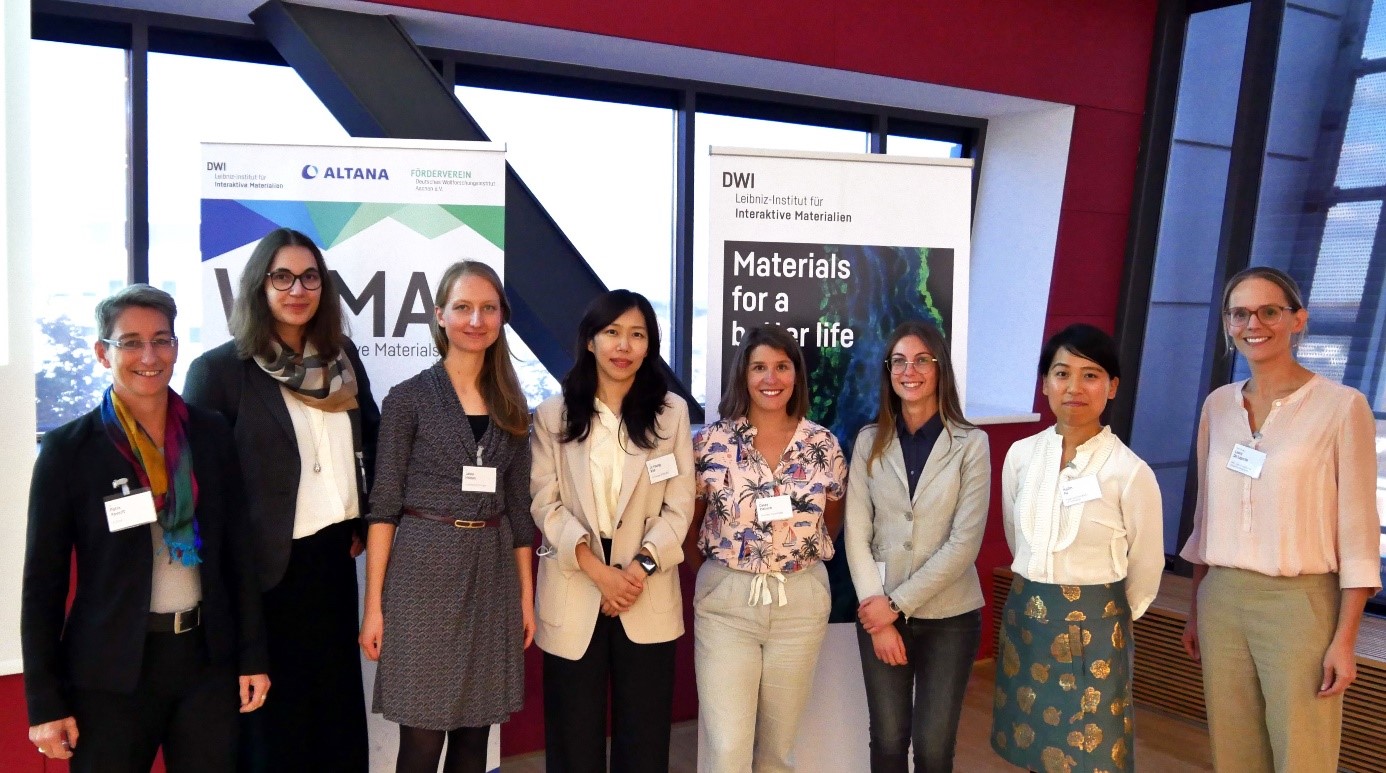Laura Heinen wins Women Interactive Materials Award 2022
Dr. Laura Heinen recently won the Women Interactive Materials Award (WIMA) 2022. She received the award for her research on adenosine triphosphate (ATP) cross-feeding synthetic vesicles. In the future, this could be applied as a platform technology to feed synthetic cells or as biotechnological nanoreactors. Heinen works as a postdoc in the Membrane Enzymology group of Bert Poolman, at the Groningen Biomolecular Sciences and Biotechnology Institute (GBB). The prize has been awarded during an award ceremony in Aachen, Germany.
Six finalists of WIMA 2022 presented their research to an audience and jury. The jury selected Heinen as winner of 2022. She receives EUR 10,000. The two follow-up laureates were Dr. Eva Bertosin (TU Delft) and Dr. Ji-Young Kim (University of Michigan).
Woman Interactive Materials Award
The Woman Interactive Materials Award is awarded annually by the DWI Leibniz Institute for Interactive Materials in Germany. The goal of the international competition is to promote young female researchers in the field of active and interactive materials. The competition is mainly aimed at female researchers at the postdoc career level.

More news
-
10 February 2026
Why only a small number of planets are suitable for life
-
09 February 2026
Can we make the earth spin in the opposite direction?
